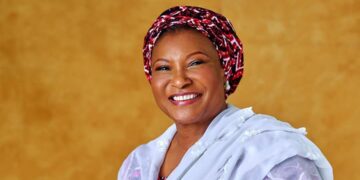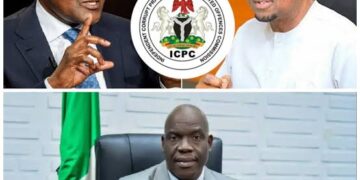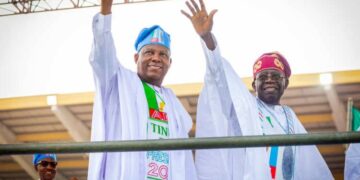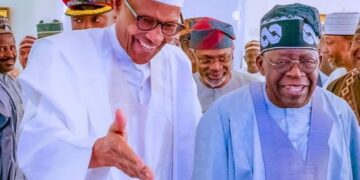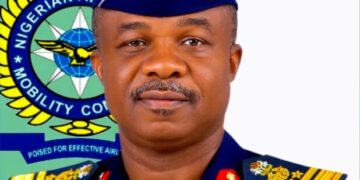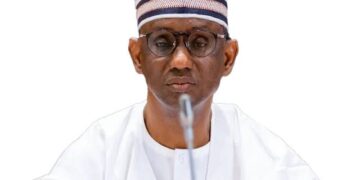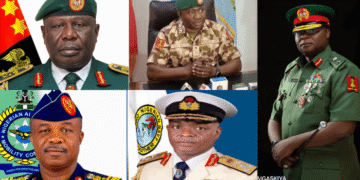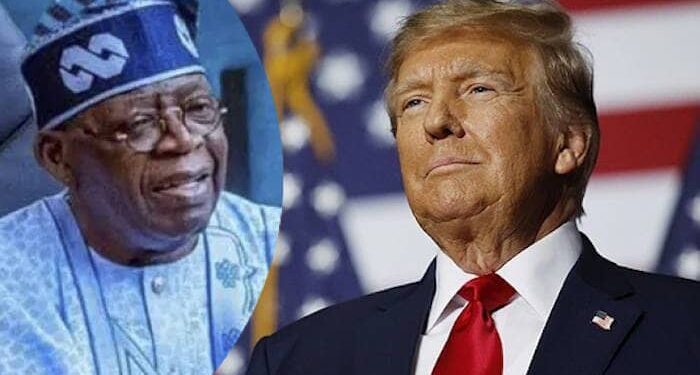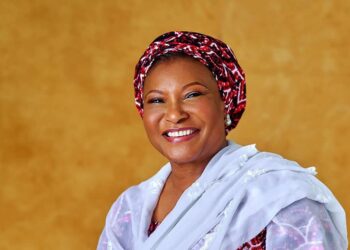ADC Responds to U.S. President Donald Trump’s Designation of Nigeria as a Country of Particular Concern
…… Attributes Genocide to Leadership Failure
The African Democratic Congress (ADC) has issued an official statement in response to the action taken by U.S. President Donald Trump on October 31, 2025, designating Nigeria as a Country of Particular Concern over alleged human rights violations.
The ADC’s National Spokesman, Bolaji Abdullahi, outlined the party’s position and recommendations for urgent national action in Abuja today.
ADC Statement
- Human Lives Are What Truly Matter
We are guided by the painful reality that what is truly at stake are thousands of human lives lost to insecurity across Nigeria, irrespective of tribe, religion, or region. We seize this moment to honour their memory and express our deepest sympathies to their families. - The Sanctity of Life Is a Global Responsibility
President Trump’s statement underscores a universal truth — that the sanctity of human life transcends borders and that every government’s most sacred duty is to protect its citizens. In today’s world, national dignity is measured not only by economic power but by respect for human rights, especially the right to life. - A Government Failing in Its Primary Duty
Sadly, the administration of President Bola Ahmed Tinubu has failed in this fundamental duty. Available data shows that nearly 15,000 Nigerians have lost their lives to violence since 2023. These deaths cut across every region and religion — entire communities displaced, worshippers slaughtered, and bandits controlling territories and levying taxes with impunity. Boko Haram, once said to be “technically degraded,” is resurging, while international terror groups now claim successful attacks on Nigerian soil. - Terror Expanding, Crisis Deepening
On October 31, 2025 — the very day President Trump made his designation — the Al-Qaeda affiliate JNIM announced an attack in Kwara State, signalling that the threat is no longer regional but national. This is not a sectional crisis; it is an existential one that endangers every Nigerian life. - Refusal to Accept Responsibility
While insecurity predates this government, President Tinubu’s refusal to acknowledge its worsening scale or take responsibility has worsened the tragedy. Nigerians have been met with silence, excuses, and political posturing that mock the grief of victims. - Diplomatic and Leadership Failures
The Tinubu administration has failed to appoint ambassadors to key countries more than two years into its tenure, citing lack of funds despite boasting of record revenues. Our foreign policy has become overly personalized — focused on promoting the image of the president rather than the interests of the Nigerian people. - Nigeria’s Decline as a Regional Power
Nothing underscores our decline more than the current fracturing of ECOWAS under President Tinubu’s leadership. Once the moral and strategic anchor of West Africa, Nigeria now struggles to command respect even among smaller neighbours. - A Government Obsessed with Propaganda
If this government had been less consumed with propaganda and self-celebration, it would have documented every violent incident, pursued every perpetrator, and demonstrated care for every victim. Instead, indifference has become policy.
ADC’s Recommendations
The ADC therefore calls for:
i. A comprehensive overhaul of the national security architecture, including an independent audit of leadership and operations.
ii. The immediate appointment of qualified ambassadors to restore Nigeria’s diplomatic presence and influence.
iii. A foreign policy reset grounded in national interest and renewed engagement with ECOWAS, the African Union, and the United Nations.
iv. Credible economic reforms targeting inflation, price stability, and verifiable social welfare systems to ease hardship.
v. An end to the personalization of governance and a return to accountability, transparency, and citizen-focused leadership.
A Call for Responsible Global Engagement
The ADC acknowledges the concern shown by President Trump and other world leaders. However, we caution that military intervention or coercive action would be counterproductive to Nigeria’s democracy and unity. What Nigeria needs is international partnership that strengthens democratic institutions and builds capacity for peace and development.
Conclusion
Nigeria is not beyond saving — but time is running out.
We must act now, with courage, honesty, and compassion, to protect the lives and dignity of every Nigerian.

